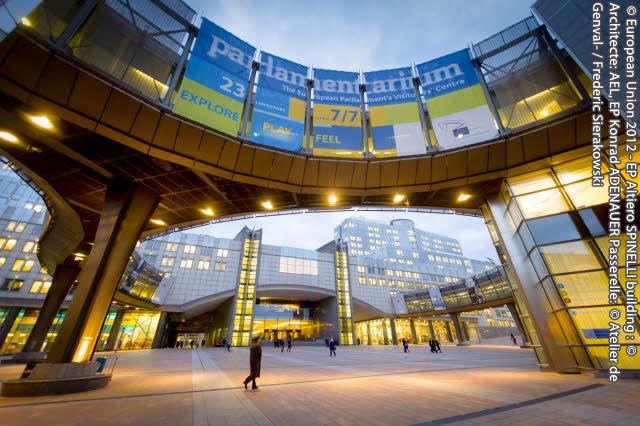
- Data
- Vieta
European Parliament, Members’ Salon, ASP buildingBrusselsBelgium
Other type of event
- Organised by
- Eurofound - EP EMPL Committee
Organisation: Eurofound Brussels Liaison Office
Venue: European Parliament, Members’ Salon, ASP building, Brussels
The European Commission will soon adopt the Labour Mobility Package. Private Labour Market Intermediaries (LMIs) such as Temporary Work Agencies (TWAs) and Employment Placement Agencies (EPAs) contribute to facilitating the free movement of workers within the EU. Most LMIs are formally registered enterprises while others remain informal or unregistered. If the facilitation of labour through Labour Market Intermediaries (LMIs) is not adequately regulated, workers might run the risk of being exploited by fraudulent LMIs. Recent research has increasingly shown how abuse by LMIs can result in employers disproportionately benefiting from people’s labour. Now due to recent increased arrival of refugees at the borders of the EU and in the context of a comprehensive approach to migration, it is even more crucial to tackle trafficking in human beings and prevent that people end up in exploitation.
Objectives
The objective of the lunch is to debate with Members of the European Parliament on the issue of ‘Preventing trafficking of labour: Labour market intermediaries and social partners’ role’. The discussion will be based on Eurofound’s comparative analysis on Regulation of labour market intermediaries and the role of social partners in preventing trafficking of labour. This study was carried out by Eurofound on the request of the European Commission DG HOME under the framework of the EU Anti- trafficking Strategy. It will contribute to the development of a best practice guide for public authorities for improved monitoring and enforcement of rules and regulations relevant to LMIs in order to prevent trafficking in human beings that the European Commission will present in spring 2016.
Content
MEP Marita Ulvskog, Vice-Chair of the EP EMPL Committee and Juan Menéndez-Valdés, Director of Eurofound will welcome participants and introduce Eurofound research.
David Foden, Head of the Working Conditions and Industrial Relations Unit, and Andrea Fromm, Research Officer in the Working Conditions and Industrial Relations Unit, will present findings from Eurofound’s study on 'Regulation of labour market intermediaries and the role of social partners in preventing trafficking of labour'. They will first discuss the policy contest and the incidence of LMIs in the European Labour market. They will then look at how these LMIs are regulated to avoid unlawful recruitment and exploitative working conditions. Furthermore, the discussion will focus at the role the social partners play in helping to prevent trafficking of workers, their challenges and limitations.
Dr. Myria Vassiliadou, EU Anti-Trafficking Coordinator, will elaborate on the EU Strategy towards the Eradication of Trafficking in Human Beings 2012-2016 and highlight the legal framework of the EU. She will recall the policy framework and its deliverables to which the Eurofound’s study will contribute.
Participation is by invitation only.